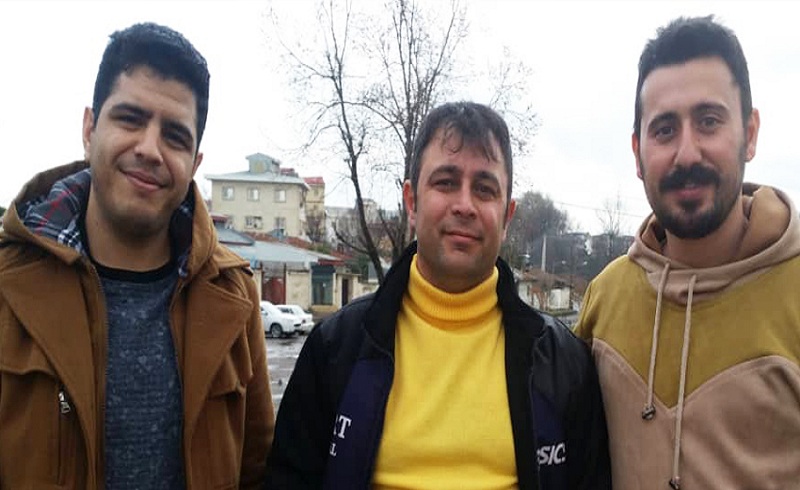Christian converts given five-year sentences for ‘deviant propaganda’

Three Christian converts have been sentenced to five years in prison for “engaging in propaganda and education of deviant beliefs contrary to the holy Sharia” and “connections with foreign leaders”.
Ahmad Sarparast, Morteza Mashoodkari, and Ayoob Poor-Rezazadeh were informed of the verdict on Saturday at Branch 2 of the Revolutionary Court in Rasht.
The three Christians, who were also fined 18 million tomans (around $750), were convicted under the amended Article 500 of Iran’s penal code following legal proceedings that were later heavily criticised by their lawyer, Iman Soleimani.
Mr Soleimani, who accompanied the Christians to court to receive the verdict, complained that his clients had been convicted only on the basis of the claims of intelligence agents of the Revolutionary Guards Corps (IRGC); that the judge, Mohammad Hossein Hosseinpour, had also taken on the role of accuser; and that there was no legal justification for the sentences, as his clients’ only “crime” had been to meet together for Christian prayer and worship.
A religious assembly, Mr Soleimani said, could not be considered an “action against the state”, while although Iran’s constitution forbids “inquisition” into a person’s beliefs, the judge’s very first question had been about their beliefs, and their confirmation of them drew an angry response. Their beliefs were later also referenced in the verdict.
The three Christians have decided to appeal against the sentences, despite being told by the judge that if they accepted them and “remained quiet”, their sentences would be reduced by one-quarter, and they may also be more favourably treated in prison, such as being eligible in time for furlough, conditional release, or freed to serve their sentences at home with an electronic tag.
However, the Christians maintain that they have done nothing wrong, and therefore are not willing to simply remain quiet and accept their lot.
Mr Soleimani added that the judge in Ahmad, Morteza and Ayoob’s case had even indicated to him that he was under pressure to give the Christians the maximum possible sentences.
Mansour Borji, commented: “The verdict in this case is typical of arbitrary sentences, stating only that the individuals were convicted because they had remained ‘persistent in their beliefs’. This is clearly a violation of the Iranian constitution, and contrary to the repeated claims of regime officials that ‘no-one is imprisoned because of their beliefs’. The conviction is also based only on the reports of interrogators – nothing more – and is therefore entirely devoid of any legal justification. The proceedings in this case also clearly debunk Iranian officials’ claims, repeated constantly to international media, that the judiciary is independent.”
